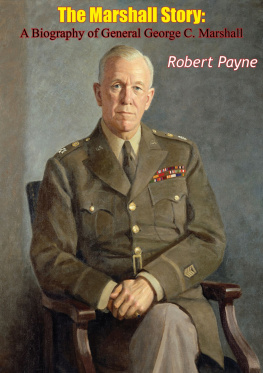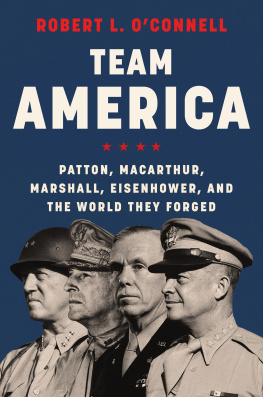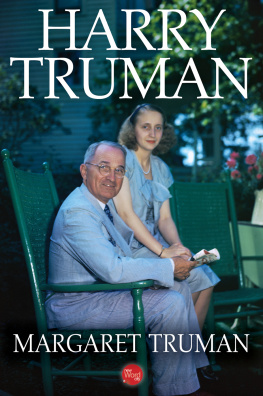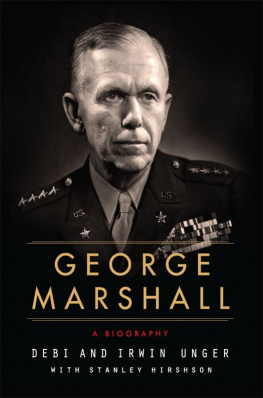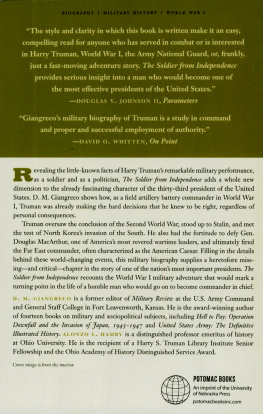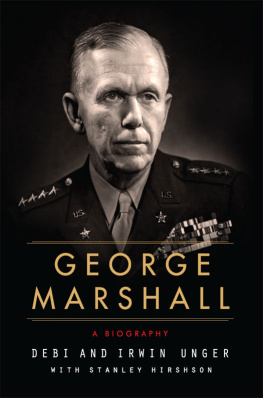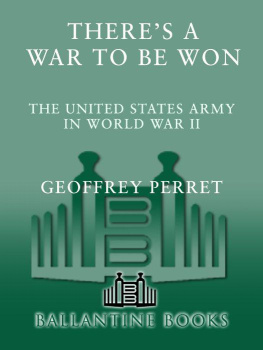PRAISE FOR
The Yanks Are Coming!
A rousing military history of an older, and in some ways better, America. The pen portraits of Americas heroes in the First World Warwhose fame in many cases extends beyond, like Patton, MacArthur, and Trumanare terrific!
William Peter Blatty, Academy Awardwinning screenwriter and bestselling novelist, author of The Exorcist, and co-screenwriter (with Blake Edwards) of the World War I comedy-drama Darling Lili
Harry Crocker presents a very readable, lively, and historically rich account of Americas involvement in World War One, from strategic-level power politics to the blood and grime of the trenches. The war narrative is complemented with short, incisive biographies of prominent leadersPershing, Mitchell, and Lejeune, among othersand the Young Lions such as George Patton, Eddie Rickenbacker, Alvin York, and Wild Bill Donovan. This is an outstanding and enjoyable volume for both seasoned military history buffs and readers who want to know more about the dramatic events that were shaping our present day a century ago.
James S. Robbins, author of The Real Custer
A brilliant book. Crocker is the absolute master at creating readable historyand on few subjects is his clarity more needed than on Americas involvement in World War I, helping readers to understand and appreciate our commitment and sacrifice. The Yanks Are Coming! is a great bookhighly recommended for anyone interested in American military history.
Phillip Jennings, former Marine Corps combat pilot and author of Nam-A-Rama and The Politically Incorrect Guide to the Vietnam War
A great story has met a great writer! Historian Harry Crocker skillfully records the important but often overlooked story of Americas pivotal role in winning World War I. Peopled by a fascinating historical cast of characters, The Yanks Are Coming! puts the reader on the front lines with the American doughboys with a you-are-there sense of immediacy. It is a memorable story of American courage and sacrifice, and the authors insightful, fast-paced narrative enlivens it anew. First-rate!
Rod Gragg, author of The Illustrated Gettysburg Reader and The Pilgrim Chronicles
Harry Crocker has tackled one of the most perplexing major wars of modern history, untangling the confusion to deliver a narrative that is not only easy to follow, but a joy to read. Unlike so many histories of the Great War, which draw readers into the snarl of the wars complexity, Crockers unwinds the sinews, laying them out in plain sight. It is a rare book that can be truly described as hard to put down. If a person was to read just one book about the Great War, there is no better one than this.
Bill Yenne, author of Hap Arnold: The General Who Invented the U.S. Air Force and a contributor to encyclopedias of both world wars



Copyright 2014 by H. W. Crocker III
All rights reserved. No part of this publication may be reproduced or transmitted in any form or by any means electronic or mechanical, including photocopy, recording, or any information storage and retrieval system now known or to be invented, without permission in writing from the publisher, except by a reviewer who wishes to quote brief passages in connection with a review written for inclusion in a magazine, newspaper, website, or broadcast.
First ebook edition 2014
eISBN 978-1-62157-279-4
The Library of Congress has catalogued the hardcover edition as follows:
Library of Congress Cataloging-in-Publication Data
Crocker, H. W.
The Yanks are coming : a military history of the United States in World War I / H. W. Crocker III.
pages cm
1. World War, 1914-1918--United States. 2. United States. Army. American Expeditionary Forces. 3. World War, 1914-1918--Biography. I. Title.
D570.C68 2014
940.40973--dc23
2014011621
Published in the United States by
Regnery History, an imprint of
Regnery Publishing
A Salem Communications Company
300 New Jersey Avenue NW
Washington, DC 20001
www.RegneryHistory.com
10 9 8 7 6 5 4 3 2 1
Books are available in quantity for promotional or premium use. For information on discounts and terms, please visit our website:
www.Regnery.com.
Distributed to the trade by
Perseus Distribution
250 West 57th Street
New York, NY 10107
For the VMI Keydets, class of 17
and
Scott E. Belliveau, class of 83
CONTENTS
I t was cold, wet, and dreary8 October 1918the Meuse-Argonne Campaign. A miasmic mist drifted through the early morning sky from exploded artillery shells and gas canisters; men clung to clumps of damp earth as bullets spat toward them from sporadic machine gun and rifle fire. On the far left of the American line was squad leader Sergeant Alvin York. In the course of his thirty years, York had grown from a sharpshooting, hard-drinking mountain brawler into a Christian pacifist, and then, once he was drafted, into a Christian soldier. He wasnt an educated man or a cosmopolitan onehed had a hard time taking his eyes off the French-speaking Vietnamese truck drivers (Chinamen, he called them) who had rocketed him to the front, driving like drunken fiendsbut he had superb instincts in the field.
The Germans had a well-earned reputation for being tenacious, superb infantrymen, but it was one of the virtues of the Americans that they werent much impressed by reputations. The Germans were entrenched on forested high ground around a valley, about five hundred yards long, that the Americans were trying to cross, having taken Hill 223 at the opening of the arc the night before. If the Germans were battle wearyintelligence reports promised that the units in front of the Americans were of low caliber, their morale used upthey were still in an excellent position to hit the Americans on three sides; in fact, the advanced American platoons were already pinned down, fenced in by German mortar and machine gun fire.
Yorks company on the far left of the American line was moving in support of the trapped units. Sergeant Harry M. Parsons sent three squads, including Yorks, a total of about seventeen men, on what he feared was a suicide mission: flank the German machine guns enfilading the American platoons.
Sergeant Bernard Early led the doughboys into the forest. Their first contact with the enemy was two Germans who wore Red Cross armbands and were shocked to see the Americans. One surrendered; the other plunged into the forest like a high-tailing deer, York and his comrades in pursuit.
The Americans weaved through the forest, finally stumbling on a detachment of tired German soldiers who had dropped their packs and were sitting down eating breakfast. Stunned at being flanked, the Germans surrendered. Except for one, who fired at York: the German missed; York didnt.
The Americans, having surprised the enemy, were now surprised in turn. German machine gunners, hidden on a covering hill, suddenly He guessed there were more than twenty machine guns ahead of him; occasionally he saw German heads over the barrels.
Next page


